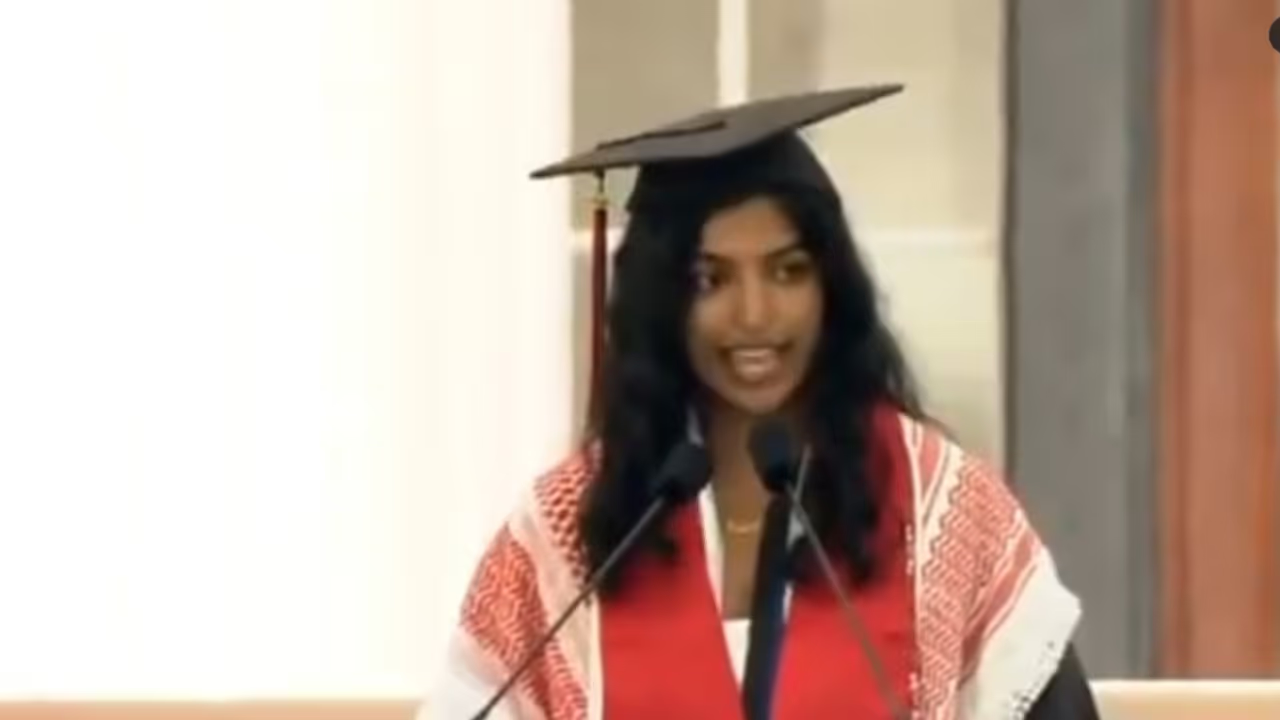Adorned in a red keffiyeh, the traditional symbol of Palestinian resistance and solidarity, Vemuri faced a crowd of graduates, professors, and families with a resounding declaration, “You showed the world that MIT wants a free Palestine.”
In a stunning and defiant address at MIT’s commencement ceremony on Thursday, Megha Vemuri—the class of 2025 president and an Indian-American student—used her moment to deliver a fiery and unapologetic pro-Palestinian message that shook the university's historic dome.

Adorned in a red keffiyeh, the traditional symbol of Palestinian resistance and solidarity, Vemuri faced a crowd of graduates, professors, and families with a resounding declaration, “You showed the world that MIT wants a free Palestine.”
Her speech unfolded against the backdrop of escalating turmoil on campuses across the US, where student protests have surged over the war in Gaza and the deep entanglements of elite institutions with the defense sector—especially entities aligned with Israel. Vemuri's words pierced through the celebratory mood, instead spotlighting a crisis of conscience within academia.
“It is no secret that at this time, academic institutions across the country are shrouded in a dark cloud of uncertainty. There is a lot of fear in many of our hearts,” she said.
Megha Vemuri on Israel's 'genocide' in commencement speech
The focal point of Vemuri’s criticism was MIT’s direct research affiliations with the Israeli military—a relationship she branded as morally untenable. “The Israeli occupation forces are the only foreign military that MIT has research ties with,” she asserted. “This means that Israel’s assault on the Palestinian people is not only aided and abetted by our country, but our school.”
Citing recent student votes calling for an end to these ties, Vemuri applauded the courage and resilience of her peers: “You faced threats, intimidation and suppression coming from all directions, especially your own university officials, but you prevailed,” she said. “Because the MIT community that I know would never tolerate a genocide.”
Vemuri evoked the obliteration of Gaza’s academic institutions: “There are no universities left in Gaza. We are watching Israel try to wipe Palestine off the face of the earth, and it is a shame that MIT is a part of it.”
She closed with a symbolic act, asking fellow graduates to rotate their iconic MIT rings so that the emblem faced outward—signaling their entry into the world. Yet, her parting words carried the weight of a moral imperative. “We carry with us the obligation to do everything we can to stop it,” she said adding, “MIT is directly complicit in the ongoing genocide of the Palestinian people.”


